Kate Forsyth's Blog, page 47
January 6, 2014
WINNERS ANNOUNCED!
What an amazing response to my giveaway! Thank you so much to you all for all of your wonderful support – I appreciate it so much.
I had a hard time choosing the winners. So many people entered the competition I ended up putting all your names into a bowl and let chance decide. I do hope the winners enjoy their books! For those who didn’t win this time, I’ll hold another giveaway later in the year.
Here are the winners!
[image error]
Cassandra Page - NSW, Australia
Helen Earl – Bedford, UK
[image error]
Riley Zim – South Australia
Melissa Wray – Victoria, Australia
[image error]
Lynn Guy – Queensland, Australia
Kristy Eden – Chicago, USA
Isabeau & Charity Schenk – Gig Harbor, USA
[image error]
Leesa Suttie – Western Australia
Liesa Socquet – Huldenberg, Belguim
Anne Sengstock – Queensland, Australia
[image error]
Kimberlie Gyaw – Glengowrie, South Australia
Lillian Smith – Sydney, Australia
Lyndal Outram – Glenelg East, South Ausrtalia
[image error]
Eszter Kiss-Deak – Hungary
Rosalie Street – Victoria, Australia
Bianca Fristad – NSW, Australia
And, yes, you may have noticed I sent out far more than 12 books – I’m too soft-hearted for my own good!
I’m away all this week so will post the books when I get home.
Happy reading!
January 5, 2014
BOOK REVIEW: Mrs Poe by Lynn Cullen
[image error]
Title: Mrs. Poe
Author: Lynn Cullen
Publisher: Gallery Books
Age Group & Genre: Historical Fiction for Adults
Reviewer: Kate Forsyth
The Blurb:
A Writer & his Demons.
A Woman & Her Desires.
A Wife & her Revenge …
A vivid and compelling novel about a woman who becomes entangled in an affair with Edgar Allan Poe—at the same time she becomes the unwilling confidante of his much-younger wife.
It is 1845, and Frances Osgood is desperately trying to make a living as a writer in New York; not an easy task for a woman—especially one with two children and a philandering portrait painter as her husband. As Frances tries to sell her work, she finds that editors are only interested in writing similar to that of the new renegade literary sensation Edgar Allan Poe, whose poem, “The Raven” has struck a public nerve.
She meets the handsome and mysterious Poe at a literary party, and the two have an immediate connection. Poe wants Frances to meet with his wife since she claims to be an admirer of her poems, and Frances is curious to see the woman whom Edgar married.
As Frances spends more and more time with the intriguing couple, her intense attraction for Edgar brings her into dangerous territory. And Mrs. Poe, who acts like an innocent child, is actually more manipulative and threatening than she appears. As Frances and Edgar’s passionate affair escalates, Frances must decide whether she can walk away before it’s too late...
Set amidst the fascinating world of New York’s literati, this smart and sexy novel offers a unique view into the life of one of history’s most unforgettable literary figures
What I Thought:
I have always thought of Edgar Allen Poe as being a strange, moody, melancholy drunk, prone to irrational rages, with a mind like a dark cabinet of curiosities. This novel bursts open those misconceptions and shines a bright light on his life, through the eyes of the woman who loved him. But no, not his wife. Mrs Poe is told through the eyes of his lover, the poet Frances Osgood.
[image error]
It is mostly set in 1845, the year Poe wrote his most famous poem, ‘The Raven’. There is a Mrs Poe – Edgar’s wife was his first cousin and they were married when she was only 13 – and Frances finds herself torn by love for Edgar and guilt over hurting his naïve and childlike wife.
[image error]
Virginia Poe
I found this part of the book really fascinating – I did not know Poe had married his 13 year old cousin – and the psychology of their marriage was really interesting and well-done. I also loved the portrait of Frances Osgood as a woman struggling to be both a good mother and a good writer (a struggle many women I know share, including myself).
One of my favourite scenes occurs just after Frances reads ‘The Raven’ for the first time, before she meets the poet himself, and she talks about it with her two young daughters:
“That’s it!” I dropped the magazine.
“What Mamma?” asked Vinnie
“This silly alliteration – it’s clinkering, clattering claptrap.”
Ellen’s face was as straight as a judge’s on court day. “You mean it’s terrible, trifling trash?”
I nodded. “Jumbling, jarring junk.”
Vinnie jumped up, trailing shawls like a mummy trails bandages. “No it’s piggly, wiggly poop!”
“Don’t be rude, Vinnie,” I said.
The girls glanced at each other.
I frowned. “It’s exasperating, excruciating excrement.”
Love it!
A final comment from Edgar Allan Poe himself:
"Those who dream by day are cognizant of many things that escape those who dream only at night."
[image error]
Edgar Allan Poe
Lynn's website
Lynn's blog
PLEASE LEAVE A COMMENT – I LOVE TO KNOW WHAT YOU THINK
January 3, 2014
BOOK LIST: Best books of 2013
I have read so many brilliant books this year that I had great trouble narrowing it down to only a few. However, at last I have managed it – here are the best books I read in 2013, divided by genre.
Because I love historical fiction, and stories that move between a historical and a contemporary setting, most of my favourite books are in these genres. However, there are a few utterly brilliant contemporary novels and fantasy novels as well. As always, my list is entirely and unashamedly subjective – many of these writers are my friends and colleagues, and one is my sister!
However, all I can say is I am incredibly lucky to know so many über-talented writers.
Best Historical Novel for Adults
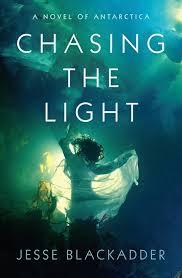
Chasing the Light – Jesse Blackadder
A beautiful, haunting novel about the first women in Antarctica.
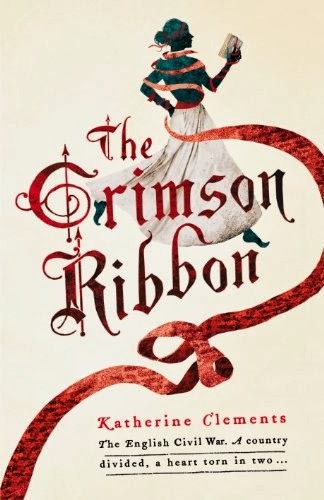
The Crimson Ribbon – Katherine Clements
Set in England in 1646, in the midst of the English Civil War, this is a utterly riveting tale of passion, intrigue, witchcraft, and treason.
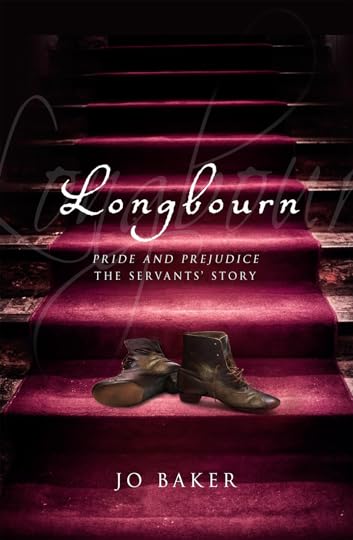
Longbourne – Jo Baker
A beautiful, intense, heart-wrenching tale about the lives of the servants at Longbourne, the home of the Bennets from Jane Austen’s Pride & Prejudice.
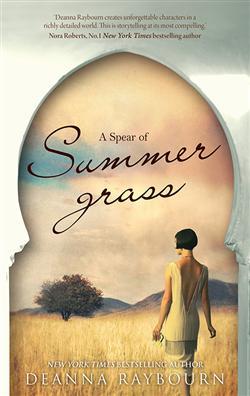
A Spear of Summer Grass – Deanna Raybourn
Set during the Roaring 20s, this is the story of debutante Delilah Drummond who has caused one scandal too many and so is banished to Kenya .. where she finds intrigue, murder and romance.
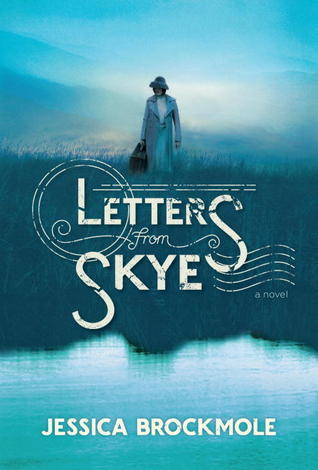
Letters from Skye – Jessica Brockmole
This charming epistolary novel moves between the First World War and the Second World War, and tells the story of the blossoming romance between a young Scottish poet and an American university student.
Best Historical Mystery
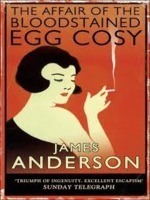
The Affair of the Bloodstained Egg Cosy - James Anderson
As one can probably tell from the title, this book is a gentle spoof of the Golden Age type of mysteries written by authors such as Agatha Christie and Ngaio Marsh – utterly clever and charming!
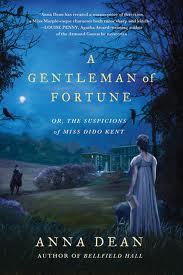
Bellfield Hall, or The Deductions of Miss Dido Kent – Anna Dean
Imagine a novel where Miss Marple meets Jane Austen, and you will begin to have a sense of this delightful Regency murder mystery. Miss Dido Kent, the heroine and amateur sleuth, is clever, witty, and astute … and finds a touch of romance in her search to uncover the murderer.
Best Historical Thrillers
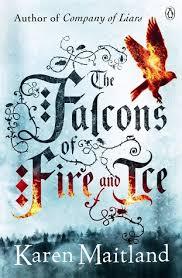
The Falcons of Fire & Ice - Karen Maitland
An utterly compelling historical novel which moves between Portugal and Iceland as a young woman searches for two rare white falcons in a desperate attempt to save her father's life. Her journey is fraught with danger, betrayal, murder and horror, with the strangest set of seers ever to appear in fiction.
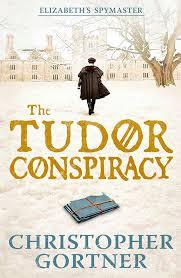
The Tudor Conspiracy – C.W. Gortner
A fast-paced, action-packed historical thriller, filled with suspense and switchback reversals, that also manages to bring the corrupt and claustrophobic atmosphere of the Tudor court thrillingly to life.
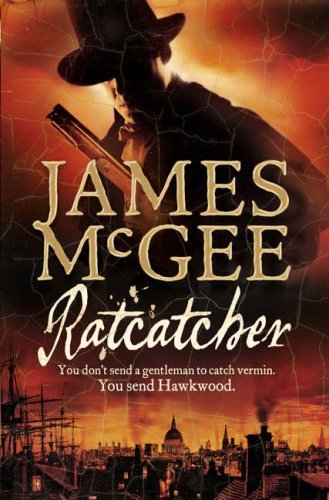
Ratcatcher – James McGee
A ratcatcher is a Bow Street Runner, an early policeman in Regency times. A great historical adventure book, filled with spies, and intrigue, and romance, and murder.
Best Historical Romance
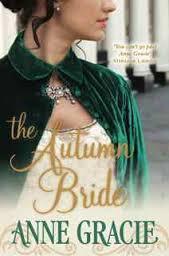
The Autumn Bride - Anne Gracie
Anne Gracie never disappoints. This is beautiful, old-fashioned romance, driven by character and situation and dialogue, and, as always, is filled with wit and charm and pathos.
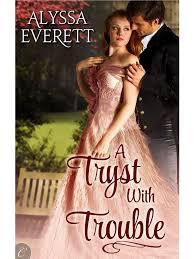
A Tryst with Trouble – Alyssa Everett
Lady Barbara Jeffords is certain her little sister didn't murder the footman, no matter how it looks … and no matter what the Marquess of Beningbrough might say ... A fresh, funny and delightful Regency romance.
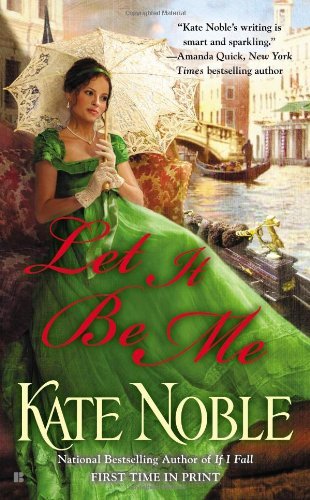
I bought this book solely on the cover – a Regency romance set in Venice? Sounds right up my alley … I mean, canal … It proved to be a very enjoyable romantic romp, with musical interludes.
Best Fantasy/Fairy Tale Retellings for Adults
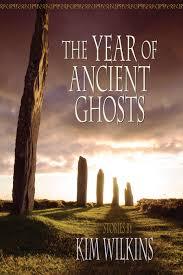
The Year of Ancient Ghosts – Kim Wilkins
'The Year of Ancient Ghosts' is a collection of novellas and short stories - brave, surprising, beautiful, frightening and tragic all at once
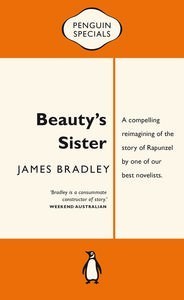
Beauty’s Sister – James Bradley
Beauty’s Sister is an exquisite retelling of the Rapunzel fairy tale, reimagined from the point of view of Rapunzel’s darker, wilder sister.
Best Parallel Contemporary/Historical
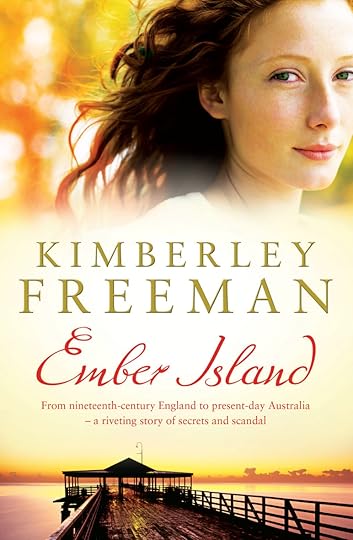
Ember Island – Kimberley Freeman
A real page-turning delight, with a delicious mix of mystery, romance, history and family drama. One of my all-time favourite authors, Kimberley Freeman can be counted on to deliver an utterly compelling story.
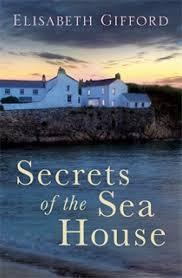
Secrets of the Sea House - Elisabeth Gifford
An intriguing and atmospheric novel set in the Hebrides Islands of Scotland, its narrative moves between the contemporary story of troubled Ruth and her husband Michael, and the islands in the 1860s when crofters are being forced to emigrate and science and religion are in conflict.
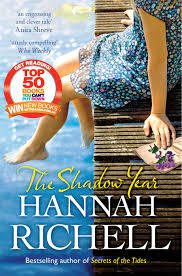
The Shadow Year – Hannah Richell
A perfectly structured and beautifully written novel which uses parallel narratives to stunning effect. A compelling and suspenseful novel about family, love, and loss.
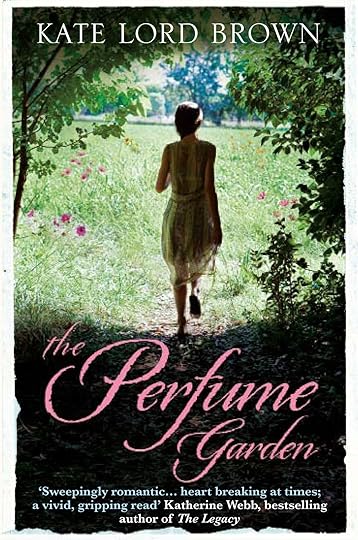
The Perfume Garden - Kate Lord Brown
A young woman inherits an old house in Spain, discovers clues to buried family secrets, meets a gorgeous Spaniard, and finds her true path in life ... interposed with flashbacks to her grandmother's experiences during the bloody and turbulent Spanish Civil War ...
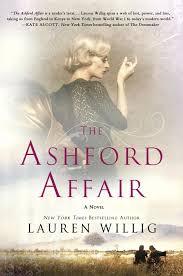
The Ashford Affair – Lauren Willlig
I absolutely loved this book which moves between contemporary New York, and 1920s England and Africa. It's a historical mystery, a family drama, and a romance, all stirred together to create a compulsively readable novel.
Best Contemporary Novel
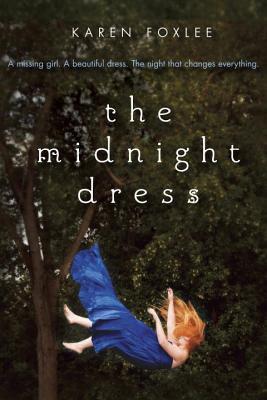
The Midnight Dress – Karen Foxlee
A beautiful, haunting, tragic tale of love and loss and yearning.
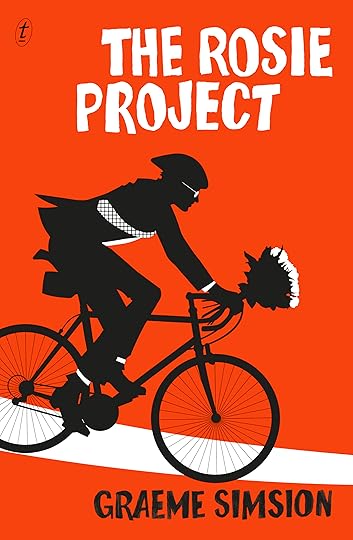
The Rosie Project – Graeme Simsion
A feel-good romantic comedy, with wit and charm.
Best Contemporary Suspense Novels
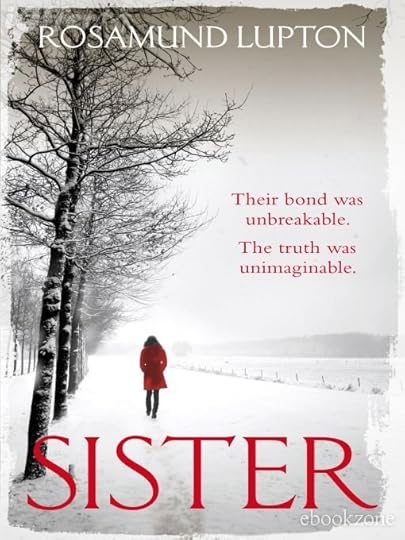
Sister – Rosamund Lupton
Utterly compulsive, suspenseful, clever, surprising, this is one of the best murder mysteries I have ever read.
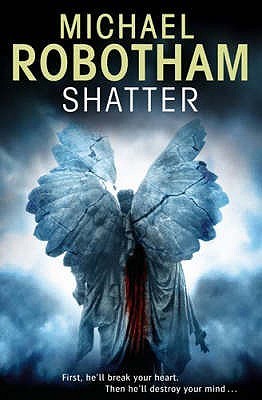
Shatter – Michael Robotham
Chilling, powerful and superbly written. Highly recommended for the brave.
Best YA Fantasy/Fairytale Retellings
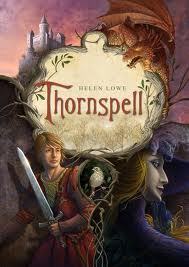
Thornspell – Helen Lowe
Helen Lowe reimagines the Sleeping Beauty story from the point of view of the prince in this beautiful, romantic fantasy for young adults.
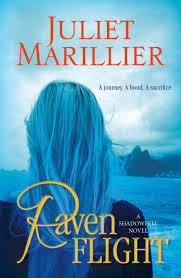
Raven Flight – Juliet Marillier
A classic old-fashioned high fantasy with a quest at its heart. The writing is beautiful and limpid, the setting is an otherworldy Scotland, and the story mixes danger, magic and romance - sigh! I loved it. This is YA fantasy at its absolute best.
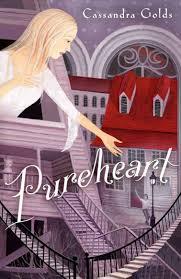
Pureheart – Cassandra Golds
Pureheart is the darkest of all fairy tales, it is the oldest of all quest tales, it is an eerie and enchanting story about the power of love and forgiveness. It is, quite simply, extraordinary.
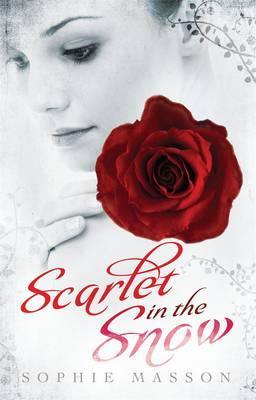
Scarlet in the Snow – Sophie Masson
I just loved this retelling of the Beauty and the Beast fairy tale, told with flair, dash, and panache, by one of my favourite Australian women writers. This is YA fantasy at its best - filled with magic, adventure and just a touch of romance. Loved it!
Best Historical Novel for Young Adults
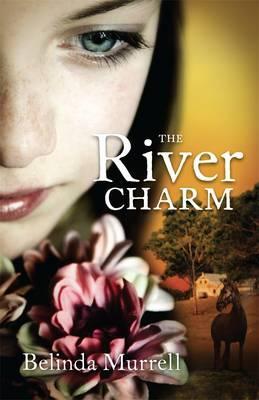
The River Charm – Belinda Murrell
This beautiful, heart-wrenching novel is inspired by the true life story of the famous Atkinsons of Oldbury, earlier settlers in colonial Australia. It moves between the life of modern-day Millie, and her ancestor Charlotte Atkinson, the daughter of the woman who wrote the first children’s book published in Australia (who was, by the way, my great-great-great-great-grandmother. So, yes, that means Belinda is my sister.)
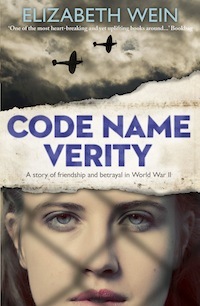
Code Name Verity – Elizabeth Wein
One of the best YA historical novels I have ever read, it is set in France and England during the Second World war and is the confession of a captured English spy.
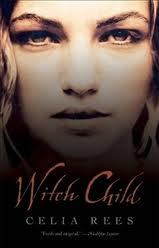
Witch Child – Celia Rees
Set in 1659, during the tumultuous months after Cromwell’s death and before the return of Charles II, this is a simple yet powerful tale that explores the nature of magic and superstition, faith and cruelty.
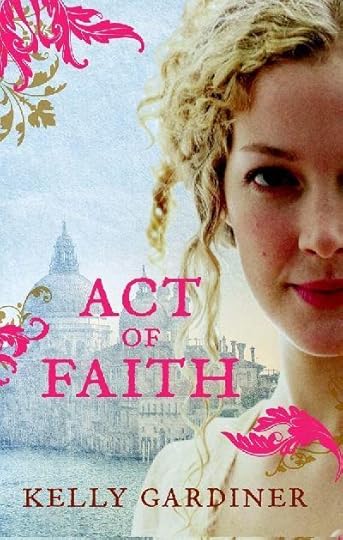
Act of Faith - Kelly Gardiner
A heart-breaking and thought-provoking historical novel for young adults, set during the rule of the Lord Protector Oliver Cromwell.
Best Children’s Books
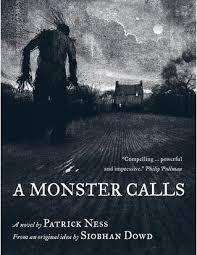
A Monster Calls – Patrick Ness
What can I say? It's brilliant, surprising, harrowing, humbling. I found it hard to breathe after I finished reading it – such an emotional wallop!
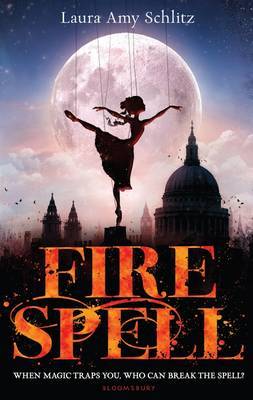
Fire Spell – Laura Amy Schiltz
I absolutely adored this book! Laura Amy Schlitz reminds me of one of my all-time favourite authors, Joan Aiken, which is very high praise indeed. This is a rather creepy story about children and witches and a puppet-master in London a century or so ago. Brilliant.
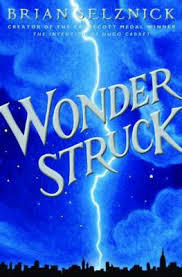
Wonderstruck – Brian Selznick
A perfect title for a book that is, indeed, struck with wonder.
Best Non-Fiction
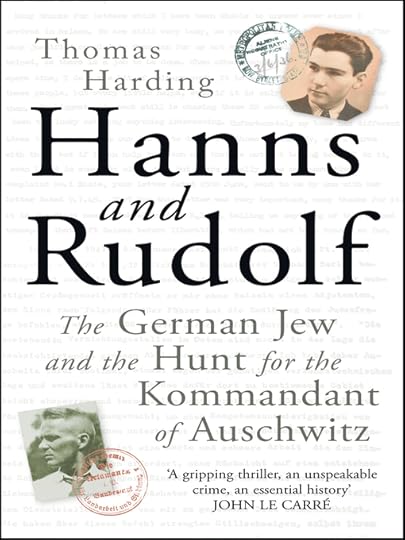
Hanns & Rudolf: The True Story of the German Jew Who Tracked Down and Caught the Kommandant of Auschwitz – Thomas Harding
The author of this utterly riveting and chilling book found out, at his great-uncle’s funeral, that the mild-mannered old man he had known had once been a Nazi hunter. And not just any Nazi. His Great Uncle Hanns had been the man who had hunted down and caught Rudolf Hoss, the Kommandant of Auschwitz.
[image error]
84 Charing Cross Road – Helen Hanff
84 Charing Cross Road is not a novel, but rather a collection of letters between an American writer and an English bookseller over the course of many years. That description does not really give any indication of just how funny, heart-wrenching and beautiful this book is – you really do have to read it yourself.
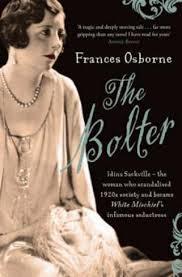
The Bolter: The Story of Idina Sackville – Frances Osborne
The Bolter is the non-fiction account of the life of Idina Sackville, the author's great-grandmother, who had inspired the key character in Nancy Mitford's Love in a Cold Climate. She married and divorced numerous times, and was part of a very fast set in 1930s Kenya that led to scandal and murder - I loved it.
PLEASE LEAVE A COMMENT - I LOVE TO KNOW WHAT YOU THINK!
January 2, 2014
BOOK LIST: Books Read in December 2013
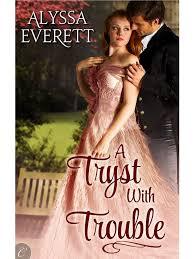
1. A Tryst with Trouble – Alyssa Everett
Lady Barbara Jeffords is certain her little sister didn't murder the footman, no matter how it looks … and no matter what the Marquess of Beningbrough might say ...
This is a really fresh, funny and delightful Regency romance. I really loved it. Of course, I always do think a little murder and mayhem improves a book! The balance of humour, romance and suspense is really well done and I’ve gone in search of more books by Alyssa Everett – hoping they are just as good!
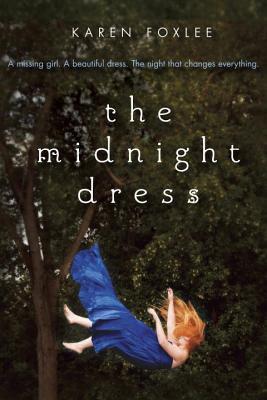
2. The Midnight Dress – Karen Foxlee
The Midnight Dress is a beautiful, haunting, tragic tale of love and loss and yearning. Told in a series of stories within stories, it circles around the mysterious disappearance of a girl one night in a far north Queensland town. The setting is superbly created, the characters are vivid and achingly alive, and the writing is exquisite. I particularly loved the character of the old seamstress Edie who, by teaching the young, sullen heroine Rose to sew and telling her stories of her own past, teaches Rose how to live. A standout read of the year for me.
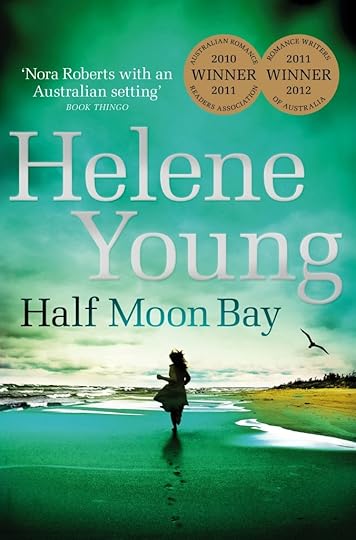
3. Half Moon Bay – Helene Young
I enjoyed this contemporary romance suspense novel set in the north coast of New South Wales. The heroine Ellie is a photo-journalist still struggling with grief over the death of her sister Nina in Afghanistan two years earlier, while the hero is an undercover government agent and ex-military officer who feels responsible for Nina’s death. They are on opposite sides of a small town’s struggle with corruption and drugs, yet neither can deny that sparks fly whenever they meet.
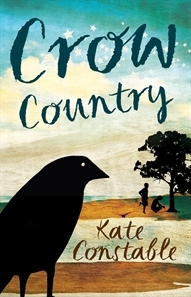
4. Crow Country – Kate Constable
I am in such admiration of Kate Constable’s bravery and delicacy in writing this beautiful book, which draws upon Aboriginal mythology and Australian history to deal with themes of injustice, racism, truthfulness and atonement. Crow Country is a simple book, simply told, but that is part of its great strength. It tells the story of Sadie, an unhappy teenager who moves to the country with her flighty but loving mother. One day she stumbles across an Aboriginal sacred site, and a crow speaks to her – she is needed to right a wrong that occurred many years earlier. So Sadie slips back in time, into the body of one of her ancestors, and sees what happens. With the help of a local Aboriginal boy, she sets out to try to fix things.
A quote from the book: “The Dreaming is always; forever... it's always happening, and us mob, we're part of it, all the time, everywhere, and every-when too.”
I loved it.
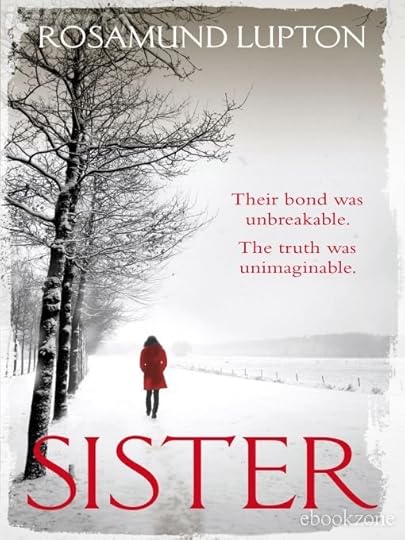
5. Sister – Rosamund Lupton
Oh my gaudy heavens! What a brilliant book. Utterly compulsive, suspenseful, clever, surprising. I think it may be one of the best murder mysteries I have read this year. Perhaps even ever. Told from the first person point of view of Beatrice, and addressed to her murdered sister Tess, the story packs a really powerful emotional punch (perhaps because I am so close to my sister Belinda and so could so well imagine the anguish Beatrice was feeling). Although the book follows Beatrice’s dogged investigation into her sister’s death and ultimate confrontation with the killer, it is so much more than that – it’s an exploration of the bonds of love and duty between sisters, a meditation on the harrowing experience of grief, and a clever literary game. Ten seconds after I read this book I bought her next book and I cannot wait to read it. ‘Sister’ was that good!
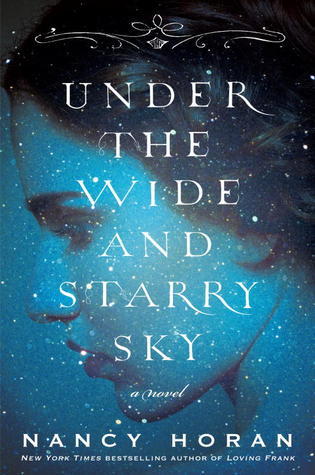
6. Under the Wide Starry Sky – Nancy Horan
As soon as I heard about this book, I grabbed hold of it and read it. There were two reasons for this. One: I really enjoyed Nancy Horan’s earlier book ‘Loving Frank’, about the passionate love affair between Mamah Borthwick Cheney and Frank Lloyd Wright. Two: the novel tells the story of Robert Louis Stevenson and his wild, strong-willed American wife, Fanny. I have had a soft spot for Robert Louis Stevenson since I was given his poetry to read as a little girl. In particular, his poem ‘The Land of Counterpane’ (about being a sick boy made to stay in bed) resonated with me strongly as I was a sick girl who spent far too much time in hospital. Consequently, I have read nearly every book he has ever written, including obscure ones like ‘Catriona’, plus have read many biographies of his life and collections of his letters. I was always intrigued by his relationship with his wife, and was eager indeed to read Nancy Horan’s imaginative recreation of their turbulent romance. I was not disappointed. This is a brilliant book, that brings the lives and times of RLS and his circle vividly to life. Read it!
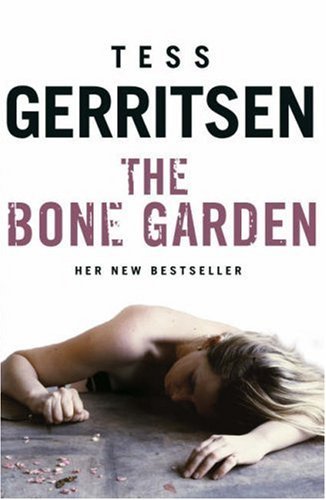
7. The Bone Garden – Tess Gerritsen
This was my first book I’ve read by Tess Gerritsen, and I really enjoyed it. She is best known for her Rizzoli & Isles series of contemporary forensic thrillers, known for their anatomical precision and grisly detail, and so this book – which moves between the present and the past – is a departure for her. It was the historical aspect of the novel which first attracted me but I’m willing to try her other, more contemporary novels now (I just hope they are not TOO grisly).
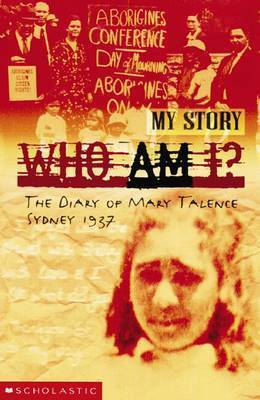
8. Who Am I? : The Diary of Mary Talence, Sydney 1937 – Anita Heiss
‘Who Am I?’ is part of the My Story series’ published by Scholastic Australia. Set in Sydney, 1937, this is the fictional diary of a young Aboriginal girl who was stolen from her parents under the White Australia government policy. Mary grows up in the Bomaderry Aboriginal Children's Home and is given the diary by the matron when she is ten years old. In its pages, she describes the daily events of her life, as well as her fears and anxieties and confusions. She soon has to leave the home, as she is adopted by a white family who live in St Ives, on the North Shore in Sydney. Here she faces racism in perhaps its most poisonous form – the daily stares, sniggers, casual insults, and calm assurance that White People Are Best. This part of the book hit home really hard for me - I grew up on the border of St Ives and many of the settings are my childhood stamping ground. I too would certainly have stared at an Aboriginal child in my school playground – I did not see anyone of Aboriginal blood until I was in my late teens and it certainly was not on the North Shore. I can only hope I would have been kinder than the fictional children in this book. I found ‘Who Am I: The Diary of Mary Talence, Sydney 1937’ a really heart-breaking and eye-opening novel which moved me to tears. A really important book for all school children, whether they live on the North Shore or not.
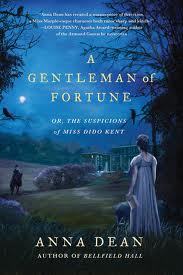
9. A Gentleman of Fortune, or, The Suspicions of Miss Dido Kent – Anna Dean
This is the second in a charming series of Regency-era murder mysteries featuring the sharp-witted lady-detective Miss Dido Kent, who cannot help being curious about the odd circumstances surrounding the death of a rich neighbour, Mrs Lansdale. The author Anna Dean must have read the works of Jane Austen many times – she captures her turn of phrase and ironic eye for detail perfectly, and the voice never flags for an instant. The mystery is brilliantly well-done too – every clue is there, and yet I still didn’t guess the murderer …
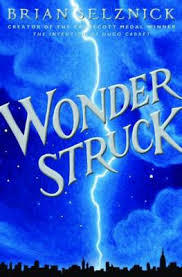
10. Wonderstruck – Brian Selznick
A perfect title for a book that is, indeed, struck with wonder. I absolutely loved Brian Selznick’s earlier book, ‘The Invention of Hugo Cabret’, which was turned into a gorgeous movie called ‘Hugo’ by Martin Scorcese. Like that book, ‘Wonderstruck’ is told partly in extraordinarily beautiful and detailed pencil drawings and partly in text. It tells the stories of Ben, who has lost his mother, and Rose, who stares longingly at pictures of a silent screen movie star. The first narrative is told in words, the second in pictures.
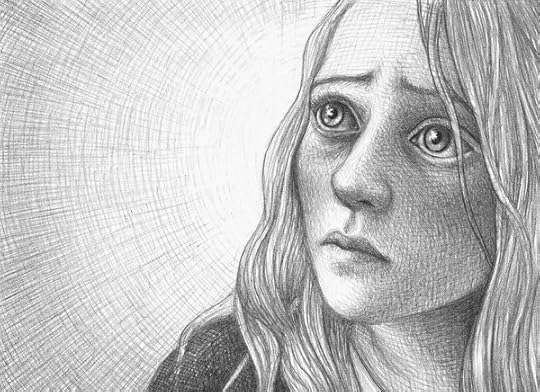
Slowly the two tales intersect in surprising ways, becoming a heart-touching story about love, art, and joyousness. Although this would be a wonderful book for a child who loves both stories and art, this is really a book for everyone who still has room in their lives for a little wonder.
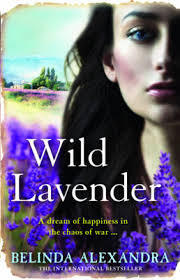
11. Wild Lavender – Belinda Alexander
An epic historical saga that follows the life of Simone Fleurier from her days as a poor girl on a lavender farm in Provence to the heights of fame as a singer on the Parisian stage and then through to her involvement with the French Resistance during the dark horror of Nazi Occupation. I enjoyed every moment of this rags-to-riches-to-rags story – the characters and the historical period were all so real and I really enjoyed every aspect of it.
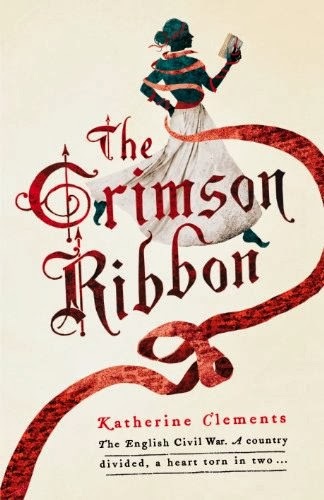
12. The Crimson Ribbon – Katherine Clements
I was utterly enthralled from the very first line of this novel: ‘Sometimes death comes like an arrow, sudden and swift, an unforseen shot from an unheeded bow.’
THE CRIMSON RIBBON is set in England in 1646, in the midst of the English Civil War. Oliver Cromwell leads the army of the people against a tyrannical king, witches are hunted down, the skies are full of evil portents. A young woman named Ruth Flowers is on the run, trying to find a safe place for herself. She is helped by an enigmatic young soldier named Joseph, but – bruised by the encounter - takes refuge in the house of an extraordinary young woman named Elizabeth Poole. Her beauty and kindness ensnare Ruth, and she uses an old charm to tie herself to her new mistress. But Elizabeth is as troubled as she is charismatic, and – as the King of England finds himself imprisoned and on trial for his life - Ruth finds herself drawn into danger, intrigue, witchcraft, and treason.
I found myself utterly unable to put this book down, constantly surprised, and constantly rewarded. This is an astonishingly assured debut title from Katherine Clements, and I’m really hoping she has more stories like this one up her sleeve!
BOOKS I READ IN NOVEMBER 2013
PLEASE LEAVE A COMMENT - I LOVE TO KNOW WHAT YOU THINK!
December 24, 2013
WIN a signed copy of one of my books!
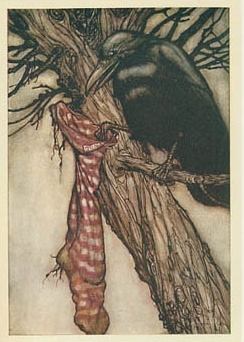
Merry Christmas!
Best wishes to you all, and thank you so much for your support during the year.
To celebrate Yule and the twelve days of Christmas, I have 12 signed books to give away. All you have to do is like me.
You can follow me on Twitter
Or like me on Facebook
Befriend me on GoodReads
Or pin about me on Pinterest
Follow my blog
Or join my VIP Club
If you already do all those things, then just talk about me somewhere, somehow. Then come and tell me in the comments section of this blog - let me know what book you would like, and why, and if you’d like a special personalised message.
Make sure you include your name and address too! No name & address, no chance to win!
Let me know what you’ve done between 25 December and 6 January and what book you’ll like, and I’ll choose 12 winners. Here are the books you can choose from:
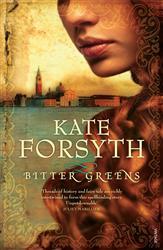
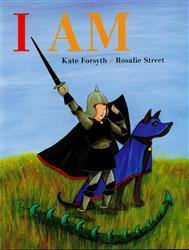
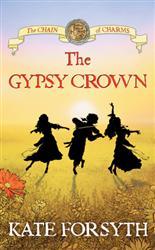
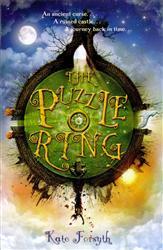
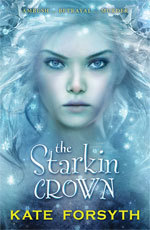
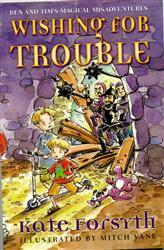
Good Luck!
PS: If you’d like to come and write with me in the Cotswolds next September, you may wish to book sooner rather than later. Still nien months away, yet spots are being booked up fast!
You need to book through the Australian Writers Centre and Bookshop Travel, the organisers of the tour
December 19, 2013
INTERVIEW: Damon Young, author of Philosophy in the Garden
[image error]
Tell me about PHILOSOPHY IN THE GARDEN.
For thousands of years, gardens have inspired poets, philosophers, novelists -- why?
Looking into the lives of great artists and writers, this book reveals the intellectual value of parks, yards and pots. They can provide quiet, exercise, food and beauty, but they can also prompt us to meditate and reflect. Jane Austen turned to her cottage garden for quiet consolation, while philosopher Friedrich Nietzsche wandered amongst lemon trees for an existential kick in the pants. Novelist Marcel Proust discovered miniature immensity in a bonsai, and scandalous author Colette found peace in roses. Gardens are not just ornaments or status symbols: they are also intellectual companions, which enhance and enliven our minds.
What do you love most in the world?
Life. Not any old life, but this one: fraught, baffling, and coloured with gratitude for my family, friends and vocation.
What do you fear most in the world?
Being cruel -- particularly to my wife and children. The end of civilisation. And robot assassins.
What are your 5 favourite childhood books?
The Magic Faraway Tree, by Enid Blyton (aged 3-5).
Ferdinand, by Munro Leaf (aged 3-5).
The Asterix series, by Goscinny and Uderzo (aged 4-10).
The Celebrated Cases of Sherlock Holmes, by Sir Arthur Conan Doyle (11-15).
Ghostrider, The Punisher and Batman comics (aged 12-17).
[image error]
What are your 5 favourite books read as an adult?
NONFICTION
Being and Time, by Martin Heidegger.
A Treatise of Human Nature, by David Hume.
Beyond Good and Evil, by Friedrich Nietzsche.
After Virtue, by Alasdair MacIntyre.
The Marriage of Cadmus and Harmony, by Roberto Calasso.
FICTION/POETRY
The Odyssey: A Modern Sequel, by Nikos Kazantzakis
Persuasion, by Jane Austen.
The Golden Bowl, by Henry James.
Mrs Dalloway, by Virginia Woolf.
Swimming Home, by Deborah Levy.
[image error]
What books might we be surprised to find on your shelves?
A shelf of superhero graphic novels, including Captain America, Wolverine, the Batman and Wonder Woman.
How would you describe perfect happiness?
'Happiness' the noun is dodgy. (See the next issue of New Philosopher magazine for my essay on this.) But what makes me happy is doing good work, artfully. It feels like this sounds: http://www.youtube.com/watch?v=uWy8iibtd98
You have a new book out. Tell me about it.
How to Think About Exercise is about wholeness. It can often seem like we're split in two: mental and physical, thinking and doing, office and gym. But exercise can enhance and enrich our minds, while the right states-of-mind can improve our exercise. Swimming, for example, can give a glimpse of the sublime, while jogging can make us more consistent. Rock climbing involves humility, but also provides the pleasure of being 'in the zone'. Sprinting rewards us with pride in ourselves, while yoga can do away with our selves altogether. In each case, fitness involves a to-and-fro between psyche and flesh, which can be edifying -- and bloody good fun. By keeping wholeness in mind, we can also avoid the lapsed or wasted gym membership: the insights, impressions and reveries of exercise last a lifetime, not just for a few fat-burning weeks.
Damon's blog, Darkly Wise, Rudely Great
December 17, 2013
SPOTLIGHT: Ruth Quibell & Damon Young talk Favourite Books
Today they get together to talk about some of their favourite books. We are in for a treat!
[image error][image error]
THE BOOKS:
The Blood of Others by Simone de Beauvoir
The Laughing Man by Victor Hugo
Report to Greco by Nikos Kazantzakis
A Moveable Feast by Ernest Hemingway
Bloomsbury Lions by Leon Edel
Ex Libris by Anne Fadiman
Swimming Home by Deborah Levy
Ruth: When we first knew each other, one of the things I liked about you was seeing the books on your literature shelf. Seeing we'd read some of the same things, or you had books I wanted to read. It gave me a sense of your inner life - what I couldn't see but knew would have to be there for you to have read such things. We could converse about characters, motivations, in a way we don't share with most other people. And that's just deepened the more books we've shared.
The Blood of Others comes from this early time. It's interwoven with making choices about who I would be, and coming up against someone who already was who they were.
Damon: Yes, that's right. There was often a double discovery. I'd be entering into Beauvoir's world of wartime Paris, and the existential drama or commitment and sacrifice. But I'd also be encountering your psyche; ideas and emotions that were invisible in the office. At that time, you seemed a little paralysed, to be honest. The Blood of Others was freeing somehow. (So liberating, it's now lost.)
Ruth: Yes, it was The Blood of Others that made the biggest impact on me. I was befuddled by my PhD at the time, scared and wary of committing to anything significant. I have to admit I'm hazy on the story details now, but I remember the female protagonist's shift in character. She becomes a character: less self-absorbed, more courageous with convictions. A literary parallel, perhaps?
Damon: Yes, as in The Golden Bowl: it's quite overwhelming, actually. Seeing an 'I' become.
Ruth: Speaking of which, The Laughing Man comes from that intense time just before we became parents, some seven years later. The tragic story seemed to help me come to terms with the enormity of what we were doing. The leap into the unknown. I finished it in a flood of tears the day before Nikos was born.
Damon: I also cried. Bloody Victor Hugo. I remember the final scene: the wolf, Homo, howling with grief into the black Thames. It's a manipulative book, but I didn't feel coerced. It got to me because it portrayed my ambivalence: full of love, but vulnerable. Pregnancy and parenthood made everything more raw.
Ruth: Report to Greco was not long after. It's the first book that had me writing down passages for their beauty. His London park bench descriptions of German bombers so far from the kindly birds Leonardo imagined.
Damon: He is so over-the-top, Kazantzakis -- but somehow he is sincere and not hokey. But there must be more to this than style?
Ruth: For me it is the permission to be sincere, and the sense of life as something great and wonderful to be experienced without trepidation.
Damon: Yes, that's it: there's a kind of nihilism (from Buddhism), but no cynicism. It's enlivening.
Ruth: Hemingway's A Moveable Feast wasn't so moving, but it made a literary impact. He's an economical yarn-spinner. I can't help liking him. This is one of the books I read during a month-long illness. I don't quite believe him but I loved his account of travelling through France with F Scott Fitzgerald. And I learnt a lot from his observations and his cool, restrained style. I wanted to read this again but you urged me not to. Why?
Damon: Good question. I can't remember, but it might've been the danger of his style. Hemingway can be a fantastic remedy for purple prose -- I used him to undo the damage done to my writing by Henry James' Victorian meanderings. But he can also suck you into a pretentious terseness, which hides literary cowardice behind false simplicity. Instead of daring to be 'literary', you play it safe. But I suspect I'm more vulnerable to this than you. Perhaps I just thought you needed to read something new, rather than turning back to something familiar? This was years ago, I'm afraid...
Ruth: The Bloomsbury group have often been helpful for us. I read Edel's Bloomsbury Lions after you, when Sophia (our second child) was around 10 months. I'd just finished up the final hectic year of a Research Fellowship, with a toddler and new baby, and was wondering what to do next. This is when I started reading biographies, partly out of curiosity, partly because I wanted to see a whole narrative. I was so much in the chaotic midst of my own! Reading Edel reminded me that no one really knows how it will all play out, but that keeping on working, making, doing - in various forms - is crucial, rather than drifting.
Damon: That book was impressive: great storytelling about the Bloomsbury mob. It took me out of the suburbs, out of kindergarten pickup and chit-chat, and kept up a connection with literary and intellectual ambition. It was also a testament to their devotion to work. This is something I've discovered in so many biographies: Henry James, Friedrich Nietzsche, Leonard and Virginia Woolf, Voltaire, Colette. They just bloody laboured, day after day. After all the anguish and grief and illness and hunger, the work remains.
Having said this, so many had no children (or were very distant parents): their days and psyches were freer. You and I have few well-known precedents!
[image error]
Ruth: I'm always surprised at the absence of children. But it's hard not to envy the amount of undivided work time that Virginia and Leonard had at their disposal. And servants to clean and bring meals too. This surely justifies having a dishwasher.
Damon: Mrs. Dalloway said she would wash the dishes herself...
Ruth: There are also reassuring surprises for anyone trying to make ends meet while working creatively. For instance, it was years before Virginia Woolf and Vanessa Bell made any decent money from writing or art!
Damon: I agree, but I'm also wary of this. It can be consoling to believe that, some day, real money will arrive. But these writers are remembered partly for their unusual success. Even Henry James, who was always worried about money, drove his pen to a handsome bourgeois lifestyle. We, on the other hand, might publish many good books and essays, and be living like students forever.
Ruth: I think I'm resigned to that. Mostly...
On a lighter note, Ex Libris, is a good illustration of the writing craft. The essay on combining libraries was something we'd navigated too.
Damon: We're still doing it, in this conversation! What I enjoy about Fadiman is how she takes notice: the impression of patience she gives, even when writing about caffeinated jitters. She's not just rushing by, oblivious. This is something that drew me to you: your interest in small details, particularly things. You notice colours, textures, shapes. (But not humans. Funny sociologist.) And, yes, as an essayist she's very fine. I use her to teach economy to writing students: just how much of a world can be suggested in a few lines.
Ruth: It's also the honest, small details about her own relationships and fairly trivial worries of daily life: her daughter hanging out at the mall, her son chewing gum, frozen sushi in the suburbs.
Damon: Yes, it brings us into a recognisable world of intimacy, but with some freshness -- familiar but not hackneyed.
Ruth: Swimming Home is the most recent book we've both read. It's like nothing else. I can't imagine finding another book like it. Hard, crisp, human. I wasn't quite strong enough for it, but it's one I'm relieved and glad to have shared.
Damon: I was relieved, knowing you 'got' it. I had recommended it to others, and they weren't moved. So seeing you gutted by Levy's prose and psychological analyses was like a quiet renewal of the marriage vows. As if you were saying: 'We're in this together.'
PS: from Kate
I so want to have you both over for dinner so I can join the conversation! I'm ashamed to say that I've only read one of these books (Ernest Hemingway's A Moveable Feast) but I've just bought Report to Greco and I'm thinking about Bloomsbury Lions and Ex Libris too.
Thanks so much for letting us eavesdrop on you!
[image error]
December 15, 2013
BOOK REVIEW: Philosophy in the Garden by Damon Young
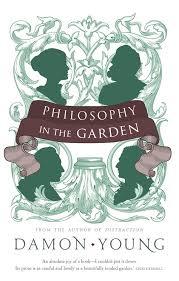
Title: Philosophy In The Garden
Author: Damon Young
Publisher: Melbourne University Press
Age Group & Genre: Non-Fiction for Adults/Philosophy
Reviewer: Kate Forsyth
The Blurb:
Why did Marcel Proust have bonsai beside his bed? What was Jane Austen doing, coveting an apricot? How was Friedrich Nietzsche inspired by his ‘thought tree'?
In Philosophy in the Garden, Damon Young explores one of literature's most intimate relationships: authors and their gardens. For some, the garden provided a retreat from workaday labour; for others, solitude's quiet counsel. For all, it played a philosophical role: giving their ideas a new life.
Philosophy in the Garden reveals the profound thoughts discovered in parks, backyards and pot-plants. It does not provide tips for mowing overgrown cooch grass, or mulching a dry Japanese maple. It is a philosophical companion to the garden's labours and joys.
What I Thought:
I have always been interested in philosophy and have tried my hand at reading books on the subject over the years, usually to find myself baffled and even, if I’m to be truthful, a little humiliated. Why can’t anyone ever express themselves a little more clearly? I’d think. Is it them or is it me?
Nonetheless, I continue to be interested in ideas. I am also utterly fascinated by the lives – both inner and outer – of writers and creative artists.
Plus, of course, I love gardens. I spend a little bit of time in my own garden nearly every day. I love to see things I have grown and cared for flourish, I love the sense of creating order out of chaos, and I have a transcendental longing for beauty.
So the title of Damon Young’s new book ‘Philosophy in the Garden’ caught my eye as soon as it was released. I read it slowly – one chapter every few days or so, whilst reading other novels in between. I found it utterly engaging and most illuminating.
Damon is Honorary Fellow in Philosophy at the University of Melbourne, and has written a number of books that bring together philosophical ideas with popular culture. His style is very readable and full of wit and personality. For example, he describes Aristotle has being known for his ‘schmick wardrobe and bling.’ Reading his work is like hanging out in a bar late at night, drinking cosmopolitans, and arguing about whether God really exists or whether He (She? It?) is just a fictive construct created to fulfil an existential human longing (whilst trying not to slur the word ‘existential’ too much).
The premise of the book is very simple. Damon has examined, in a series of short and lively essays, the lives of half-a-dozen authors in relation to their garden (or lack of garden) with a particular focus on their philosophies. I was very familiar with some of the writers’ work (Jane Austen, George Orwell, Emily Dickinson), had tried and failed to read some of the others (Friedrich Nietzsche, Jean-Paul Sartre) and had never heard of one (Nikos Kazantzakis).
Each chapter was full of illuminations and insights. I knew Jane Austen loved her garden but did not realise that her writing suffered when she was away from it. I was particularly enamoured of one of Damon’s points in this essay, regarding the scene in ‘Pride & Prejudice’ in which Elizabeth sees Pemberley for the first time (as Damon says, this scene is ‘known across the civilised world as the home of Colin Firth’s wet shirt’). This is the one scene in P&P that I have never liked, because I thought it made Elizabeth seem to start liking Darcy more because of the wealth of his possessions. However, Damon interprets the scene a little differently. The garden reflects Darcy’s soul – beautiful, ordered, tasteful, and serene. ‘She had never seen,’ Austen wrote, ‘a place for which nature had done more, or where natural beauty had been so little counteracted by awkward taste.’ Damon goes on to show how this ordered and serene approach to gardening reflected Jane Austen’s own life and philosophy, and so not only made me see one of my favourite authors more clearly, but has deepened my love for one of my all-time favourite books. This is a true gift … and Damon repeated this revelation for me in the chapter on Emily Dickinson, quite possibly the poet I love the most.
I also learnt a great deal.
I did not know Proust kept bonsai by his bed, or that Friedrich Nietzsche lived in a ménage a trois (this was one chapter when I’d have liked to have had a whole lot more details!) I also had never understood Nietzschean philosophy before and now I feel as if I could, with a little more reading and thinking. In fact, I went and googled Nietzsche, and spent a few hours reading up on him.
I also discovered a new author, one of the greatest gifts anyone can give me.
I had never heard of Nikos Kazantzakis, one of the authors Damon examines, but just listen to this:
‘Words! Words! There is no other salvation! I have nothing in my power but twenty-four little lead soldiers. I will mobilise. I will raise an army.’
It’s something I could have written myself, so exactly does it express my own evangelist love of words and books. I am now searching out the work of Kazantzakis, so look forward to some more raving on him in the future.
Thank you, Damon!
Damon’s blog
PLEASE LEAVE A COMMENT – I LOVE TO KNOW WHAT YOU THINK
December 14, 2013
BOOK LIST: Books I Read in November 2013
I read 9 books this month, with an interesting mixture of historical fiction, contemporary suspense, and philosophy. It was also AusReading Month in the blogosphere and so I made an effort to read some of the books by Australian authors in my tottering pile of books to-be-read. I managed four – Kelly Gardiner, Sara Foster, Jenny Bond and Damon Young – and I can recommend them all. Proof that we have an exciting degree of writing talent here in Australia!
1. Mrs Poe – Lynn Cullen
I have always thought of Edgar Allen Poe as being a strange, moody, melancholy drunk, prone to irrational rages, with a mind like a dark cabinet of curiosities. This novel bursts open those misconceptions and shines a bright light on his life, through the eyes of the woman who loved him. But no, not his wife. Mrs Poe is told through the eyes of his lover, the poet Frances Osgood. It is mostly set in 1845, the year Poe wrote his most famous poem, ‘The Raven’. There is a Mrs Poe – Edgar’s wife was his first cousin and they were married when she was only 13 – and Frances finds herself torn by love for Edgar and guilt over hurting his naïve and childlike wife. This novel is a really fascinating read – it brought the world of 1840s New York vividly to life, taught me a whole lot I didn’t know, and made me want to go and read Poe again.
[image error]
2. The Girl on the Golden Coin – Marci Jefferson
The Restoration is one of my absolute favourite periods of history and I have read a lot of books set in that period. However, I had never read about Frances Stuart before and so I found this novel of her life by Marci Jefferson utterly fascinating. Frances is a distant cousin of Charles II whose family lost everything in the English Civil War and their subsequent exile with the royal court. Frances has only her beauty and her wit to help her survive in the decadent Restoration court, but she uses both to high advantage. Spying for the French king, Louis XIV, on the one hand and keeping a sensual King Charles II on a short leash with the other hand, Frances must keep a clear head without losing her heart –which proves far more difficult than she imagined. A wonderful read for anyone who loves historical fiction.
[image error]
3. Act of Faith – Kelly Gardiner
Act of Faith is an intoxicating mixture of history, adventure, romance and philosophy. It is, I think, one of the cleverest books to be published for young adults in the past few years, yet it wears its scholarship lightly. The novel is set in 1640. England is in the midst of the English Civil War, a time of extraordinary political and religious upheaval. The heroine of the tale is Isabella Hawkins, daughter of an Oxford don and philosopher. She has been taught by her father to read Greek and Latin, as well as many other languages, but she has to hide her brilliance for, in the mid-17th century educated women were considered quite freakish. When Master Hawkins is imprisoned for his ideas, Isabella helps her father escape but sets in chain a sequence of events that will end in tragedy and exile. She ends up alone, in Amsterdam, working with a printer who is publishing seditious books and smuggling them all over the world. Danger is all around her, but Isabella is determined to work for political liberty and intellectual freedom. With a gorgeous cover and interior design from the Harper Collins designers, this is a book both beautiful and brilliant, and one I highly recommend.
[image error]
4. Death & Judgement – Donna Leon
I always enjoy Donna Leon’s murder mysteries set in Venice and featuring the unflappable Commissario Guido Brunetti. This book is No 4 in the series and not one of her best, but its still very readable. In this case, Brunetti is investigating the murder of a prominent lawyer. As he digs deeper, Brunetti discovers a sordid web of corruption, prostitution and lies which ends up hurting his own family. Donna Leon has now written 22 books, and apparently a TV series is being filmed. I’d recommend starting with No 1 (Death at la Fenice) and reading your way through.
[image error]
5. Beneath the Shadows – Sara Foster
This contemporary suspense novel begins with a really intriguing premise. Our heroine Grace is living in an old Yorkshire cottage with her husband and newborn baby. One evening, her husband takes the baby out for a walk and never comes back. The baby is found on the doorstep in her pram. One year later, Grace returns to the cottage in an attempt to put the pieces of her life back together. She finds herself troubled by strange happenings and gradually comes to realise that she and her daughter are both in grave danger. The suspense is a little unevenly handled, but the setting is truly creepy and evocative and the story kept me turning the pages.
[image error]
6. My Brother Michael – Mary Stewart
Mary Stewart is one of my all-time favourite authors, and I like to re-read at least one of her books again every year. My Brother Michael has never been one of my favourites, but its been a long while since I last read it (at least six years!) so I felt it was time to revisit. I’m so glad I did. Her books are such a joy to read – effortlessly graceful, suspenseful, character-driven and this one made me want to go to Greece so badly. My Brother Michael was first published in 1959, yet it has not dated at all. I wish she had written many many more books!
[image error]
7. Goodbye, Marianne: A Story of Growing Up in Nazi Germany – Irene N. Watts
A novel for children inspired by the author’s own childhood, this is a beautiful and very moving account of life for a young Jewish girl in Berlin in the early days of World War II. Marianne, like the author, escapes on the Kindertransport to Great Britain, leaving her family behind, so the book does not contain any great atrocity, making it a perfect read for a thoughtful and sensitive child.
[image error]
8. Perfect North – Jenny Bond
This historical novel is the first book from Jenny Bond and illuminates a little known expedition to conquer the North Pole by hot-air balloon. Although inspired by true events - the 1897 hydrogen balloon voyage by Swedish explorers S.A Andrée, Knut Frænkel and Nils Strindberg to the North Pole and the discovery of their frozen remains in 1930 – the story is much more focused on the inner life of Strindberg’s fiancée Anna. An intriguing and unusual book.
[image error]
9. Philosophy in the Garden – Damon Young
What an unusual and engaging book! Damon Young is Honorary Fellow in Philosophy at the University of Melbourne, which makes him sound rather musty and dusty. On the contrary he is young, hip, and has a very readable style. His premise is very simple – he looks at the lives and works of half-a-dozen authors in relation to their garden (or lack of garden) with a particular focus on their philosophies. I was very familiar with some of the writers’ work (Jane Austen, George Orwell, Emily Dickinson), had tried and failed to read some of the others (Friedrich Nietzsche, Jean-Paul Sartre) and had never heard of one (Nikos Kazantzakis). Each chapter was full of illuminations and insights. I knew Jane Austen loved her garden but did not realise that her writing suffered when she was away from it. I didn’t know Proust kept bonsai by his bed, or that Friedrich Nietzsche lived in a ménage a trois (this was one chapter when I’d have liked to have none a whole lot more!) I loved discovering Emily Dickinson was a gardener and that her poems were full of flower symbology. Each chapter made me want to know more, and sent me on little expeditions of googling and looking up other books. And I’m now off in search of books by Nikos Kazantzakis (he sounds so brilliant, how could I never have heard of him?) I’d really recommend this for anyone with an enquiring mind (even those who, like Sartre, hated gardens).
[image error]
How many books did you read last month? Did you beat me? Any good recommendations?
PLEASE LEAVE ME A COMMENT - I LOVE TO KNOW WHAT YOU THINK
http://www.kateforsyth.com.au/kates-blog/book-list-books-read-in-october-2013-1
http://www.kateforsyth.com.au/kates-blog/book-list-books-read-in-september-2013
http://www.kateforsyth.com.au/kates-blog/book-list-books-read-in-august-2013
http://www.kateforsyth.com.au/kates-blog/book-list-books-read-in-july-2013
December 12, 2013
INTERVIEW: Kelly Gardiner author of Act of Faith
Here Kelly joins me to chat about inspirations, serendipity, favourite books and my usual preoccupations:
[image error]
Are you a daydreamer too?
Absolutely!
Have you always wanted to be a writer?
Yes, although I did go through a phase where I wanted to be an archaeologist - until I found out you had to be really good at maths and science.
Tell me about yourself – where were you born, where do you live, what do you like to do?
I was born in Melbourne, and lived here most of my life although I did spend several years in Sydney and then on an island in New Zealand. Now I'm back in Melbourne and I live in an old cottage called Thelma. I spend a lot of time gardening. And day dreaming.
How did you get the first flash of inspiration for this book?
A few different things came together. I was thinking about how the impact of the early printing press in Europe felt similar to the impact of the web; it changed the world, but there were also crackdowns on information and ideas, as there are in many countries today. And I was also getting cranky about media reports and all the rhetoric about refugees, as if it's a new thing, when of course there have always been refugees, sadly. But then I had a flash of a scene in which a young woman is on a ship about to be wrecked - I didn't know who or where or even when she was but then she became in my mind someone who was a refugee from the kind of political and religious oppression many people have faced throughout history.
[image error]
Isn't a gorgeous cover?
How extensively do you plan your novels?
It depends on the story. I don't usually have a complete plan at the start, but once I've done some research it all becomes clearer and then I do plan quite precisely, especially where the story rubs up against real events in history. But when I'm writing I always forget to look at my plan.
Do you ever use dreams as a source of inspiration?
I sometimes have scenes flash into my mind in those minutes between sleeping and being fully awake, but not dreams as such. More often it's the case that I can't sleep for thinking about the work, and have to get up and scribble things down. Then the next morning they make no sense at all.
Did you make any astonishing serendipitous discoveries while writing this book?
I hadn't understood that the Puritans in England had really gone all over the countryside and smashed up everything in the churches and especially the universities. I'd decided to set the first part of Act of Faith in Cambridge, and it was only then that I read about the attacks on the colleges. Amazingly, all the proceedings of the House of Lords and Commons from the Civil war era are digitised and online, so you can actually read the transcripts of Parliament, for example on the day the King turned up to arrest some of the members and the House refused. It gives me goosebumps.
Where do you write, and when?
I have a tiny writing room lined with books and looking out into the garden. But I can write anywhere - on the train, in a cafe. I try to have a couple of writing days in the week, but I also have a part-time job and do some teaching so I have to be very careful to lock in some writing time.
What is your favourite part of writing?
It's those moments when you have no idea how much time has past or what day it is because you are somewhere else completely.
What do you do when you get blocked?
I don't really get blocked, but if it's not working for some reason I will just keep writing through it, even if what I produce is rubbish that I'll never use - or watch an episode of Buffy the Vampire Slayer.
How do you keep your well of inspiration full?
How do we stop it from overflowing? There are so many stories I want to write.
Do you have any rituals that help you to write?
Not really, though I do find it hard to work in mess, so I tidy up beforehand. Because I can only write part-time, I have to be very good at managing time. This is what I do: I block out two-hour sessions in my diary. And in those hours I just write - no email, no facebook, no putting loads of washing on - nothing. I don't even answer the phone. Within those hours I do 25 minute writing sprints. This is called the Pomodoro method. You just write for 25 minutes, then have a five or ten minute break, and keep repeating that for the two hours. I use a little app which dings when the time's up.
I can fit three blocks of two hours into a writing day - or more if I write into the night. I don't look up anything or fuss over words, I just write. Then in the breaks I can check my research or find a missing word. It's quite intense but great for drafting or really focusing on a task.
Who are ten of your favourite writers?
Gosh, what a hard question. Let's see...
Jeanette Winterson
Leo Tolstoy
Ernest Hemingway
Hilary Mantel
Primo Levi
Sarah Waters
David Malouf
Umberto Eco
Jan Morris
Antony Beevor
My favourite writer for children is Margaret Mahy - she was a genius and I miss her. And there are so many fantastic local writers for children and young adults I can't even begin to list them here.
[image error]
I love Margaret Mahy too!
What do you consider to be good writing?
I like precise writing, not too overwritten or self-conscious, moving without being emotional, and with a strong narrative and rhythmic voice. Those elements are important in writing for readers of any age, whether it's fiction or non-fiction, but precision is critical in writing for younger readers. I live in hope of mastering it one day.
What is your advice for someone dreaming of being a writer too?
Read everything you can get your hands on, even genres you might not normally read. And just write. Don't get obsessed with all the stuff about publishing - just write the best work you can, and tell the stories that only you can tell.
What are you working on now?
I've just finished a novel for adults called Goddess, based on the real life of a seventeenth-century French swordswoman and opera singer, Mademoiselle de Maupin. It's taken four years to research and write, and I feel a bit bereft without it. It's being typeset at the moment, so I'll get pages to proofread in the next week or so. It comes out in the middle of 2014.
Over summer I'll go onto the next project, War Songs, which is set on the Somme during World War One - it's a major redraft and I'm really looking forward to getting stuck into it.
You can read my review of Act of Faith here and visit Kelly's website here
[image error]



